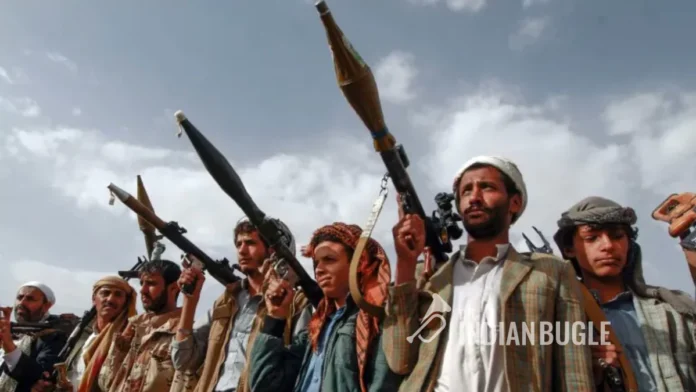In recent weeks, the aggression of Houthi rebels specially in the Rea Sea has escalated, drawing international attention. This article aims to provide an informative overview of who the Houthi rebels are.
The Houthi rebels, also known as Ansar Allah or “Partisans of God,” represent a militant group aligned with Iran. They have been active in Yemen for over a decade, engaging in a prolonged civil war that began in 2014. The conflict erupted when the Houthis seized power in the capital city, Sana’a, prompting a Saudi-UAE alliance to attempt their removal.
The Houthis are primarily Shia Muslims, receiving support, both in terms of arms and finances, from Iran, a Shia-majority country. In contrast, Yemen’s government is backed by Sunni-majority Saudi Arabia and its Western allies, including the United States.
Despite being a Shia group, the Houthis have found common ground with the Sunni Palestinian organization, Hamas. Both share a mutual opposition to the United States and Israel. This alignment is part of broader regional rivalries, with Iran supporting various groups that oppose Israel, including Hezbollah in Lebanon.
The recent escalation in the conflict stems from Houthi attacks on ships in the Red Sea. These attacks, initiated in response to Israel’s bombardment of Gaza, have raised concerns globally. The United States and the United Kingdom conducted military strikes against Houthi targets in Yemen on January 11, aiming to counter the threat to international maritime vessels in the Red Sea.
The Red Sea is a vital waterway, and approximately 12% of the world’s trade passes through it, connecting the Arabian Sea to the Mediterranean via the Suez Canal. The Houthi attacks have disrupted shipping, forcing some vessels to take longer routes and increasing fuel costs.
The military strikes by the US and UK were supported by Australia, Bahrain, Canada, and the Netherlands. President Joe Biden stated that these actions were a direct response to unprecedented Houthi attacks, emphasizing the importance of safeguarding freedom of navigation in critical maritime routes.
Despite ongoing peace negotiations mediated by Saudi Arabia, Oman, and the United Nations, the recent events raise uncertainties about the prospects of reaching a resolution to the Yemeni civil war. The international community remains watchful, with Russia calling for an emergency UN Security Council meeting to address the situation.
In conclusion, the Houthi rebels, with their Shia background and alignment with Iran, have become central players in the complex web of Middle East conflicts. The recent military strikes reflect a concerted effort to curb their actions and protect vital global trade routes. The implications of these events on regional stability and peace negotiations remain uncertain.
